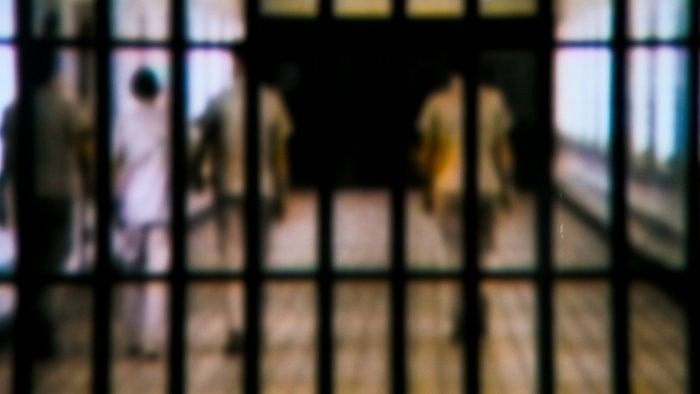
Representative image of a prison.
Credit: iStock Photo
Kollam (Kerala): A Kerala court on Thursday sentenced to life imprisonment three individuals found guilty in connection with a low-intensity IED blast at the Kollam district collectorate in 2016.
District Principal Sessions Court Judge G Gopakumar sentenced each of the three convicts -- Abbas Ali (first accused) from Madurai's Ismail Puram, Shamsun Karim Raja (second accused) from Madurai's K Pudur, and Dawood Sulaiman (third accused) from Madurai's Pallivasal -- to life imprisonment for offences under the Unlawful Activities (Prevention) Act, public prosecutor Sicin G Mundakkal said.
The three were also sentenced to 10 years each for the offence under section 307 (attempt to murder) of IPC, the prosecutor said.
The court also imposed a fine of Rs 30,000 on each of them, he added.
The convicts were linked to an extremist group promoting the ideology of Al-Qaeda leader Osama Bin Laden.
The blast had occurred on June 15, 2016, in a jeep parked within the collectorate compound, where an IED concealed in a tiffin box exploded around 10.45 am near the Munsiff Court, producing a loud noise.
The accused were charged with violations under the Unlawful Activities (Prevention) Act, criminal conspiracy, attempted murder, and the Explosive Substances Act.
The prosecution had alleged that the first accused founded the extremist 'Base Movement' at Tamil Nadu's Darul Islam Library and recruited others to promote Bin Laden's ideologies, aiming to create a climate of terror through nationwide court bombings beginning in 2015.
They had carried out blasts at court premises in Chittoor, Andhra Pradesh on April 7, 2016; Mysore on August 1, 2016; Nellore on September 12, 2016; and Malappuram on November 1, 2016.
The Kollam court blast case was initially registered by West Police and investigated by the Kollam Assistant Police Commissioner under orders from the Kollam City Police Commissioner. National Investigation Agency (NIA) officials from Hyderabad, who probed the Mysore blast case, arrested the accused on November 28, 2016.
According to the prosecution, the first accused manufactured the bomb at his residence, and the second accused planted it. Notably, the second accused had visited the collector's office two weeks prior to the blast and taken photographs.
The third accused reportedly claimed responsibility for the blast through social media messages from Andhra Pradesh.